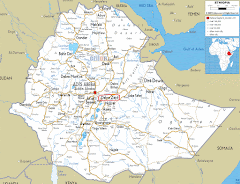Here are a few statistics, mostly from Sri Lanka’s Central Bank, Economic and Social Statistics, 2012, a few from conversations with friends.
• Sri Lanka’s population is 20 million.
• 76% are Buddhists, 9% are Muslims, 8% are Hindus, and 7% are Christians.
• The average household has four people.
• The average life expectancy is 75 years.
• Unemployment was three-and-a-half percent in 2010.
• The median monthly income is $200.
• 33% of the work force is in agriculture, 17% in manufacturing, and 15% in trade and hotels.
• ¼ of a million Sri Lankans migrated for employment in 2011, mostly to Saudi Arabia, Qatar, Kuwait, and the U.A.E. 52% of those who migrated were male, while 48% were female.
• Sri Lanka’s biggest exports are textiles, garments, tea, rubber, and coconut products.
• Anuradhapura, the city near our home, has no rain for six months.
• Humidity during the six-month dry season is 60% during the day and 90% at night.
• Humidity during the rainy season (Nov and Dec) is 80% in the day and 95% at night.
• 80% of household cooking is done with wood, 16% with gas, and 4% with kerosene.
• 55% of household garbage is burned or buried, 22% is dumped outside, 15% is hauled away, and 6% is processed for fertilizer.
• There are 32 institutions of higher education in Sri Lanka, 15 of which are government-funded universities, where tuition is free for students.
• Rice is the staple food in Sri Lankan, eaten three times a day by many Sri Lankans.
• The average adult consumes 20 to 25 pounds of rice a month, costing 10 to 15 cents a pound.
• Rice accounts for 17% of the average household monthly expenditures.
• There are fewer than one million internet subscribers in Sri Lanka.
• There are 18 million cell phones in use.
• The preferred mode of suicide (though uncommon) is drinking insecticides and pesticides.
• Sri Lanka’s population is 20 million.
• 76% are Buddhists, 9% are Muslims, 8% are Hindus, and 7% are Christians.
• The average household has four people.
• The average life expectancy is 75 years.
• Unemployment was three-and-a-half percent in 2010.
• The median monthly income is $200.
• 33% of the work force is in agriculture, 17% in manufacturing, and 15% in trade and hotels.
• ¼ of a million Sri Lankans migrated for employment in 2011, mostly to Saudi Arabia, Qatar, Kuwait, and the U.A.E. 52% of those who migrated were male, while 48% were female.
• Sri Lanka’s biggest exports are textiles, garments, tea, rubber, and coconut products.
• Anuradhapura, the city near our home, has no rain for six months.
• Humidity during the six-month dry season is 60% during the day and 90% at night.
• Humidity during the rainy season (Nov and Dec) is 80% in the day and 95% at night.
• 80% of household cooking is done with wood, 16% with gas, and 4% with kerosene.
• 55% of household garbage is burned or buried, 22% is dumped outside, 15% is hauled away, and 6% is processed for fertilizer.
• There are 32 institutions of higher education in Sri Lanka, 15 of which are government-funded universities, where tuition is free for students.
• Rice is the staple food in Sri Lankan, eaten three times a day by many Sri Lankans.
• The average adult consumes 20 to 25 pounds of rice a month, costing 10 to 15 cents a pound.
• Rice accounts for 17% of the average household monthly expenditures.
• There are fewer than one million internet subscribers in Sri Lanka.
• There are 18 million cell phones in use.
• The preferred mode of suicide (though uncommon) is drinking insecticides and pesticides.

No comments:
Post a Comment